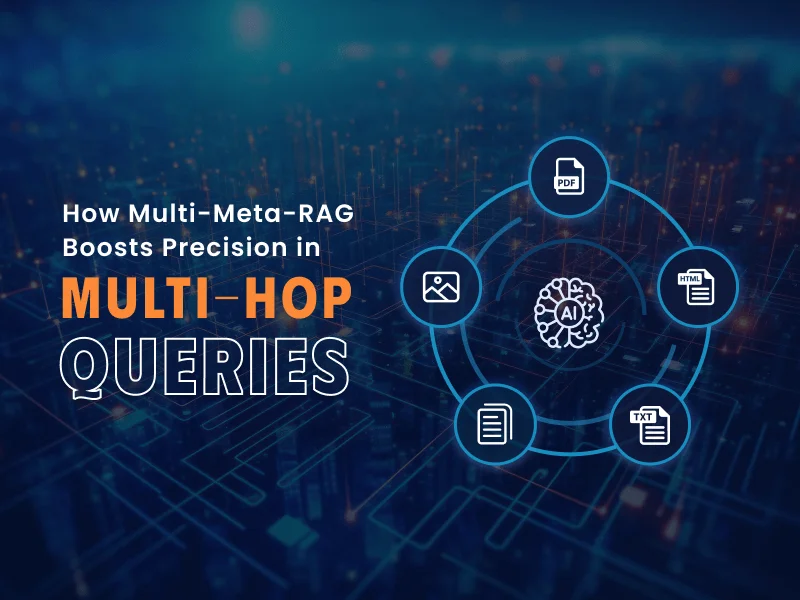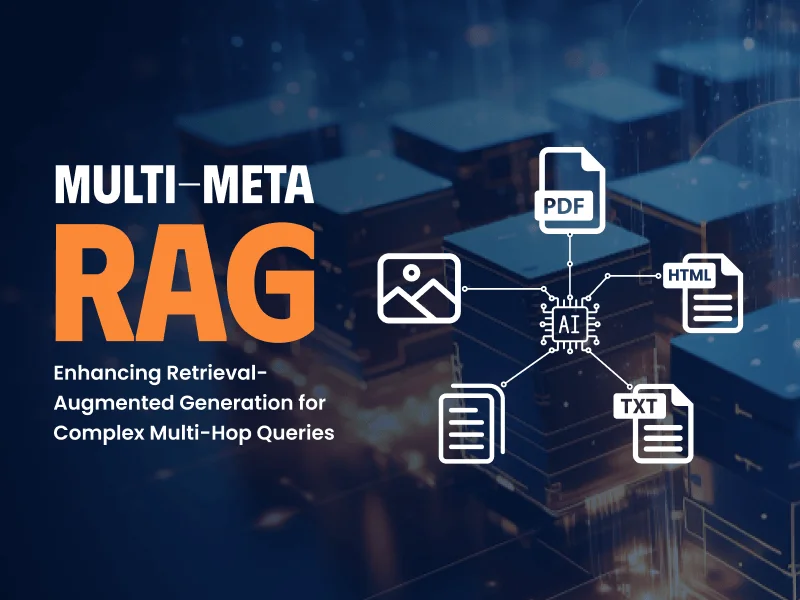Newly launched platform provides businesses a stable, future-ready foundation to harness the power of generative AI
Seldom has a technological breakthrough won such widespread acceptance so quickly. In November 2022, ChatGPT’s public release took the world by storm. Reaching a million active users in just five days, and 200 million just two months later, it became the fastest-growing consumer application in history. AI is now beyond a buzzword, and debate rages about its potential to change the way society lives, works, and even thinks.
As generative AI evolves to embrace a wide variety of use cases, Acuvate has unveiled its ‘Centralized Generative AI Platform.’ The platform offers businesses a stable base from which enterprises of all sizes can leverage AI in more powerful ways. Let’s examine why such a platform is essential and how it can help businesses embark on their AI journeys with confidence and ease.
Generative AI has evolved, and so have its business use cases
Generative AI initially caught the fancy of consumers, who used it for research and for creative work like generating text articles, images and music. But, in the short time it has been in the public domain, AI has rapidly transitioned into a tool for business transformation. It’s estimated that 67% of US businesses now use generative AI in some form.
At its core, AI thrives on what businesses have in plenty – data. This allows businesses to use it as an integral part of critical functions and operations. Besides its content creation and personalization capabilities, generative AI helps them in predictive analytics and process automation. Repetitive tasks like generating sales e-mails, answering customer queries and coding can now be performed without human intervention, thanks to Large Language Models (LLMs) working with enterprise data. Using machine learning algorithms, generative AI can analyze historical data patterns, helping businesses make data-driven decisions regarding market demand, predictive maintenance, supply chains, and a host of other factors.
These and other rapidly emerging use cases allow businesses across every sector to unlock value across their operations. Generative AI offers businesses cost savings and improved efficiency. It helps them offer their customers a personalized, contextual experience. Equally importantly, it also throws up invaluable insights for strategic decision-making. Eager to harness generative AI, managers at different levels and across business functions are developing their own solutions. Most of these are decentralized, follow different governance policies and feed off their own data pools. And, there lies the issue.
The need for centralization: AI is exciting, but its potential pitfalls are many
The newness of AI and the simplicity of developing AI applications mean that businesses can easily get AI implementations wrong. Unlike previous technologies, AI applications are usually open-source and can be adapted on the fly. This ease of implementation encourages the decentralization of generative AI solutions, where applications are designed by end users to meet their own specific use cases. And that’s where decentralized AI strategies can go awry.
AI is still in its infancy and is evolving without any discernible pattern. As Gartner’s Hype Cycle study shows, generative AI is currently viewed with rose-tinted glasses but will still take two to ten years to reveal its actual transformational benefits. In the meantime, data security issues, legal and regulatory complexities and allied governance issues are very real pitfalls. Data hallucinations and biases can also have serious real-world repercussions, affecting corporate reputations and incurring regulatory penalties.
Beyond governance, using generative AI in a decentralized framework cannot derive the maximum benefit from it. As mentioned earlier, generative AI works best when it has large volumes of data to crunch. Decentralized AI applications typically have access only to a limited silo of data, increasing their potential for inaccuracies and lack of context. Besides, most generative AI applications are frequently updated, making maintenance a challenge. Finally, scalability is an issue in the long run, as there’s no saying that an application that works well at one level will do so when asked to meet the needs of a more significant part of the enterprise.
Business leaders must consider a centralized platform that can serve as the foundation for their various generative AI applications. Centralized governance serves as a gatekeeper against rogue AI applications. Data is consolidated and ingested enterprise-wide, allowing for highly accurate contextual responses and strong data security. Finally, all applications are vetted by a single expert team, ensuring effective maintenance and scalability.
Acuvate's centralized platform lets your business derive maximum value from generative AI.
Acuvate’s Generative AI Platform is an easily implementable and customizable centralized AI platform that meets the needs of any business in any sector. Its salient features include:
Centralized administration of all the generative AI apps in an enterprise
Seamless integration with diverse enterprise platforms and data sources
Unified data governance, with uniform security protocols and selective need-based access
Pre-installation testing of AI models to avoid hallucinations and data biases. This ensures highly efficient maintenance and scalability
Flexibility for different functional departments to implement tailored generative AI solutions quickly, with a higher accuracy index
These features let you roll out an enterprise-wide generative AI strategy that’s cost-effective, highly efficient and user-friendly. For example, we have helped one of our customers, a leading global childcare products company innovate with Generative AI at scale, quickly adopting and adapting, and dramatically speeding up its decision-making processes. Acuvate’s Generative AI platform has also eased governance and minimized the customer’s data management and maintenance costs for Gen AI applications.
Read more about this case study here.
Conclusion
Generative AI is still in its nascent phase, but already offers your business cost and productivity benefits that cannot be ignored. A piecemeal, decentralized approach to implementing AI, though, has numerous pitfalls. Therefore, it is highly advisable that your business uses a single platform as the foundation for all enterprise-wide generative AI applications to derive the most out of generative AI. Acuvate’s Generative AI Platform is one such tried and tested solution.
Click here to know more about Generative AI centralization and to speak to our experts about kickstarting your enterprise’s journey of Generative AI success.




